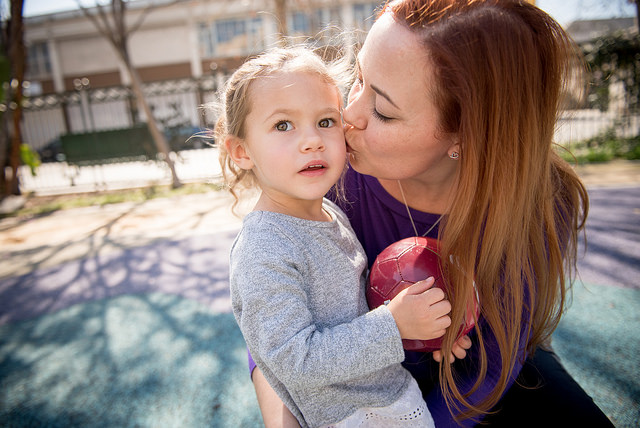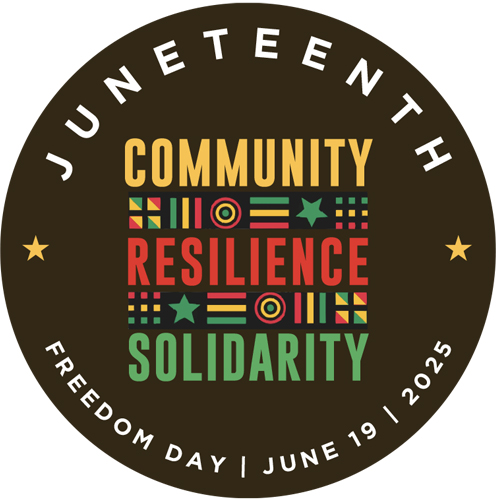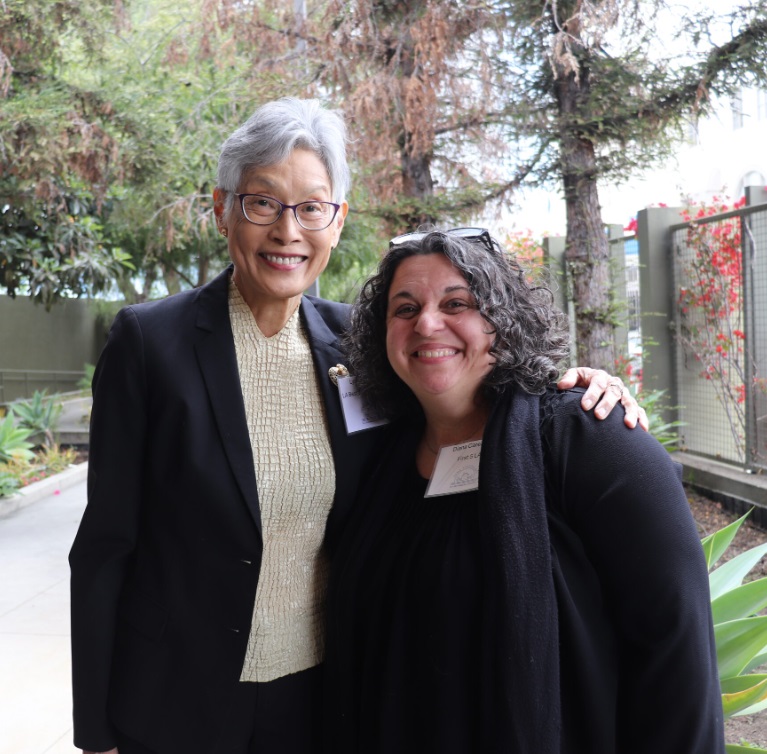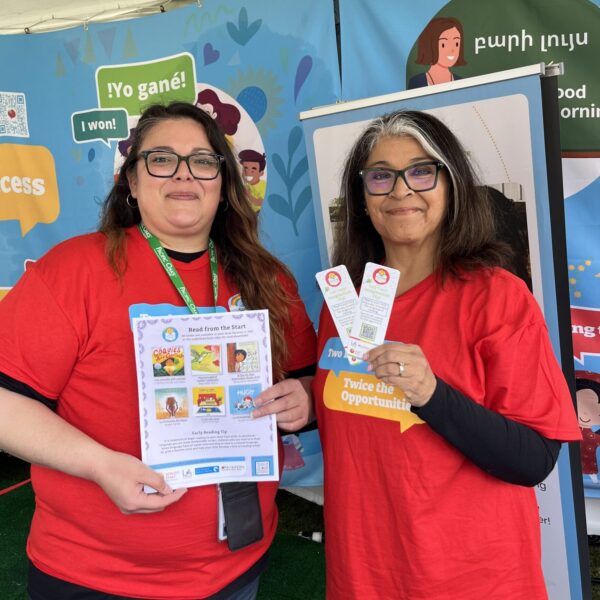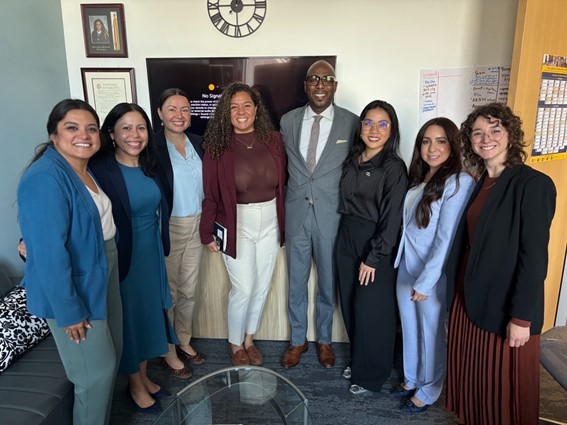By Kim Belshé, Executive Director, First 5 LA
Fear and uncertainty are not new to many families in Los Angeles. For some, there’s the constant uncertainty that comes from living paycheck to paycheck. For others it’s the fear of losing a job, or having an unexpected expense because of health care or other basic needs. These, sadly, are constants regardless of who is president.
At this moment in time, actions by President Trump are contributing to the fear and uncertainty for many of Los Angeles’ families. The president’s decision to end the Deferred Action for Childhood Arrivals (DACA) program, coupled with other Executive Orders on immigration, has had an immediate impact on the populations we serve and added a new, complex level of uncertainty and distrust of government institutions.
Here in L.A. County, parents who are immigrants are pulling their children out of preschool. New moms are fearful to participate in voluntary home visiting programs. Parents are turning away from health services that children need and are eligible for. Thousands of immigrant parents are living in fear, and that fear has translated into their withdrawal from accessing services their children are legally entitled to receive. And the health and development of thousands of children is jeopardized by the fear and stress associated with detention or deportation of a parent.
Our mission is to ensure young children have the best start in life anchored by strong and safe families and family-supporting communities. The Trump Administration’s actions have created an environment of fear and represent a threat to young children and their families – and a threat to the work of funders like First 5 LA.
First 5 LA will not be passive observers, but active participants. We will not be reactive, but engage and advocate. We will not work on our own, but collaborate with others.
First 5 LA has been thinking carefully about what our role and contribution can be.
We aren’t immigration experts. Our expertise resides in early childhood development issues. We have an understanding of the impact fear and uncertainty can have on child trauma and well-being. As advocates for kids, we see our role as highlighting the impact every policy has on children and empowering parents as their child’s strongest advocate.
Guided by our mission, and grounded in our shared commitment that children are priority No. 1, we’ve learned valuable lessons we’re applying to address the impact of immigration issues on young children.
Those lessons include:
- Listening carefully, to all voices and in every language so that we understand their fears and can help them cope;
- Being nimble and adaptable to what parents’ needs are and how to address them;
- Partnering with other First 5 organizations throughout California – created by voters in 1998, each of the state’s 58 counties has a county-level First 5 commission – whose constituents have the same fears as parents in Los Angeles;
- Finding common ground with organizations such as the California Community Foundation to ensure families have access to critical information about other public resources and;
- Speaking truth to power via public meetings, and print, social and digital media to help change the conversation to make clear immigration is a children’s issue.
All families, including immigrant families, have rights to receive services for their young children – education, health care, etc. We must ensure they know about these services and how to access them. Unfortunately, the reality is many of these families are living in fear and foregoing critical support today that can potentially accelerate long-term negative effects on children’s growth, development and well-being.
Just as we recognize the challenges now facing families, it is comforting to know that in these times of volatility and uncertainty, we are not alone. There has been an awakening among the public about what the Trump Administration’s actions mean to the communities we serve.
There is a heightened awareness of how immigration policy impacts children and families, and a new mobilization of voice and action. We are seeing civic involvement in new and exciting ways.
So as we continue to put children and families at the center of all that we do, we are joining many partner organizations to take concrete actions.
On the ground, throughout L.A. County, we are focused on building supportive communities where children and families can thrive. We are listening carefully to the concerns of immigrant parents and exploring partnerships with trusted local and national community-based organizations to help them better respond to needs.
For example, in partnership with the California Community Foundation and Abriendo Puertas/Opening Doors we are helping ensure that families have access to critical information about available public resources. We are joining First 5 Commissions across the state to distribute a family-friendly guide, “Care, Cope, Connect,” helping parents initiate conversations with their children about community stress and separation.
And, we are examining what role we can play in providing adequate outreach and response to support the upcoming 2020 Census, critical to current and future programming and planning supporting families and communities.
First 5 LA will not be passive observers, but active participants. We will not be reactive, but engage and advocate. We will not work on our own, but collaborate with others. We’re proud to work with community leaders and parents alike to help parents cope with the fear and uncertainty. Working with the wide range of organizations throughout California, and nationally, who are doing the same, we can make a difference.
Staying true to our mission – for First 5 LA and for other organizations who share our concerns about immigration issues and its effect on families – will help guide us all as we work together to insure that all young children and their families live free from threat and fear.
Kim Belshé is executive director of First 5 LA. Belshé also served as the Secretary of the California Health and Human Services Agency under Governor Schwarzenegger from 2003 to 2011.
This opinion editorial was originally published in the Chronicle of Social Change on December 22, 2017.
